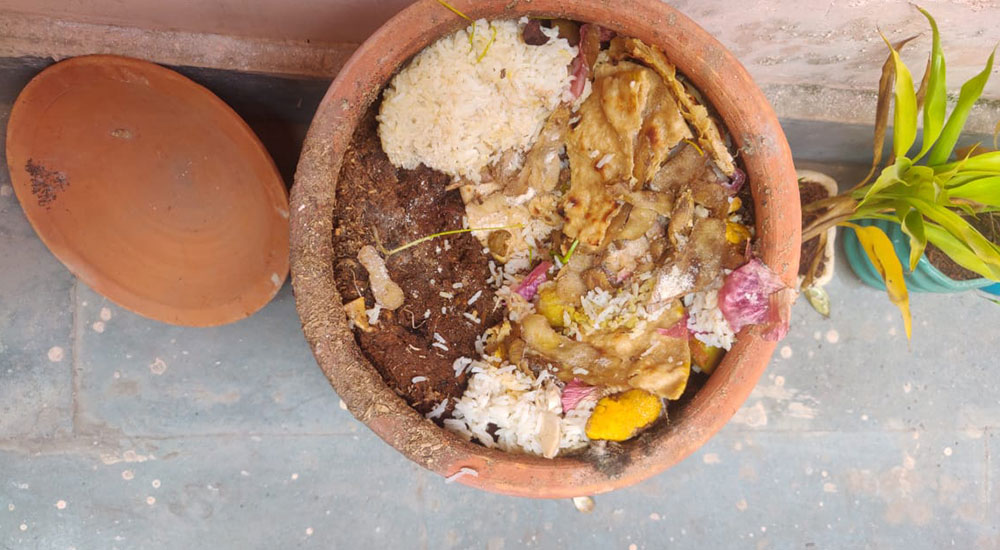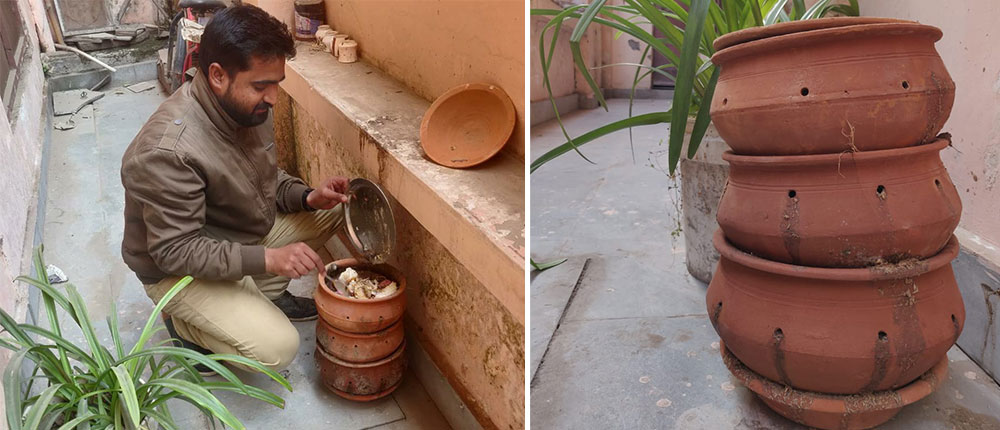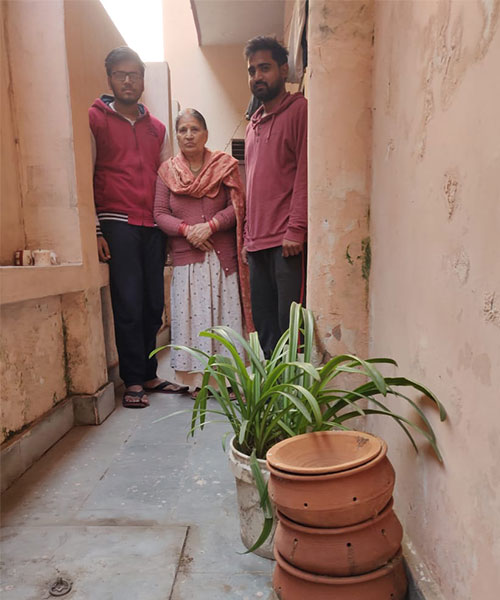In an era where only a few want to treat waste in their backyard, Kuldeep Choudhary’s family developed it into an amusing custom at Varanasi. The waste generated in the kitchen of their house like fruit and vegetable peels, leftover food, tea leaves, garden trimmings, etc. doesn’t add load to their waste bin anymore. They simply manage their wet waste at home by recovering nutrients and creating black gold called manure.

The dry waste separated and stored in a bin for collection by Varanasi Municipal Corporation (VMC) no longer attracts breeding flies, bugs and worms, as it mostly has all recyclables and inerts. The waste collector, who is an informal sector worker getting a small fee for waste collection is also happy, he makes more money now by selling recyclables, as his recovery rate has increased due to segregation.
A resident of Shivpurwa ward near Sigra, Kuldeep learned the art of making compost (also termed black gold) from the VMC team who came for a door to door campaign to start composting at home using microbial cultures (prepared using cow dung). He started this composting with a 3 layer earthen pot composter which he had made at his home, post discussion with VMC team.

With time and patience, the family sees their wet waste turning into compost that is dark brown crumbly and has a smell of earth. They use this compost in their garden where they nurture different varieties of vegetables and flower-bearing plants as well as herbs, lowering dependency on chemical fertilizer. This method of Kuldeep’s family inspired many neighboring families. They showcased that composting is an easy process with a joyful experience. Most of the colony families have initiated composting now.

As an impact of home composting at Kuldeep's colony, waste getting collected for further transportation has started reducing, in turn reducing the burden on VMC for transportation of waste and subsequent treatment. Eventually, associated Green House Gasses (GHGs) from the landfill will also reduce at Varanasi, if this decentralized model becomes popular among citizens of Kashi (Varanasi).
Home Composting in their colony also supported another group of entrepreneurs, potters. With the tradition of pottery, potters were respected craftspeople who contributed to the social and cultural fabric of society. Now, potter’s children don’t want to continue learning and practicing this craft as it has low dignity and monetary benefits. But the products like composters support and raise the value of this sector and now they can make more money by selling small bio-reactors, making these entrepreneurs feel the pride in what they make for the society.
Ms Ankita Bhatia is an intern at Centre for Waste Management, TERI in New Delhi.
The Varanasi Municipal Corporation, under the project development and promotion of waste NAMA (Nationally Appropriate Mitigation Action), is conducting door to door campaigns through TERI – GIZ team in Varanasi to spread awareness among public on waste management and home composting.

